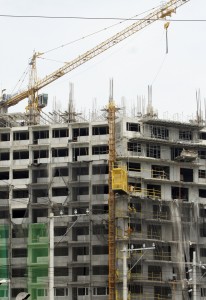PH rated ‘most improved’ Asean nation by US firms

The Philippines has emerged as the “most improved” nation among members of the Association of Southeast Asian Nations (Asean) with American firms expressing increased satisfaction over the stability of the country’s political system. AP PHOTO/PAT ROQUE
MANILA, Philippines—The Philippines has emerged as the “most improved” nation among members of the Association of Southeast Asian Nations (Asean) with American firms expressing increased satisfaction over the stability of the country’s political system.
Based on the Asean Business Outlook Survey 2014, satisfaction with the Philippines increased across 14 of the 16 business factors over the last five years. Dissatisfaction of US companies with the perceived corruption in the Philippines fell to 59 percent in 2013 from a high of 91 percent in 2003, while negative sentiments on the country’s infrastructure fell to 55 percent from 69 percent during the same period.
These developments, however, were not enough to propel the Philippines to be one of the most attractive countries for business. The survey showed that Singapore remained one of the most attractive countries in Asean to do business, while Indonesia, Vietnam, Thailand and Myanmar were favored for business expansion.
The Asean Business Outlook Survey, the key barometer of US business sentiment in Southeast Asia, was conducted between May 10 and June 10. This is the 12th year the US Chamber of Commerce, together with the chambers of commerce in each of the 10 member states of the Asean, polled 475 business leaders of US companies on their investment plans, outlook for the region, and perceptions of some of the key challenges and opportunities in the region.
“[A] highlight in the region is the marked improvement of the Philippines. The country has experienced high levels of growth recently and our survey shows why, as business leaders there indicate higher levels of satisfaction across almost all surveyed factors as compared to five years ago,” noted Simon Kahn, chair of AmCham Singapore.
According to the survey, 87 percent of respondents were satisfied with the availability of trained personnel in the Philippines, reportedly the highest percentage in Asean.
Other areas of satisfaction in the country included sentiment toward the US with a satisfaction rate of 79 percent, also the highest in Asean; availability of low cost labor (74 percent); personal security (56 percent); housing costs (56 percent); office lease costs (51 percent); new business incentives offered by government (44 percent); free movement of goods within the region (41 percent) and availability of raw materials (38 percent).
Meanwhile, main concerns largely remained consistent over the past five years, according to Amcham Philippines. These include corruption, tax structure, infrastructure, laws and regulations, and ease of moving products through customs.
“Corruption, insufficient infrastructure and the tax structure remain challenges in the country, but it is clear that business leaders have seen significant progress in recent years,” Amcham Philippines explained.
Optimistic
In general, the Asean Business Outlook Survey showed that many US firms remained optimistic about business prospects in Asean, with 79 percent reporting that their company’s levels of trade and investment in the region increased over the past two years, while an overwhelming 91 percent of respondents expected it to increase over the next five years.
A large number of respondents also said they expected their businesses to expand and to increase their workforce within the year.
The survey, however, found substantial concerns and impediments to companies’ growth in the region.
Like in the Philippines, corruption was also the top issue across Asean, with the majority of respondents in all countries except Brunei and Singapore expressing dissatisfaction.
Business leaders also cited burdensome laws and regulations as obstacles to greater investment, as well as the poor quality of infrastructure, and the difficulty of moving products through customs in some countries.
The survey further revealed that regional economic integration efforts, such as Asean’s agreements on trade in goods and services, were important to US companies’ investment plans in the region, with 54 percent of the respondents saying their company had a strategy based on the goals of the Asean Economic Community (AEC).
Global economy integration
The AEC, which will be established by December 2015, envisions a single market and distribution base, a highly competitive economic region with equitable economic development, and a region fully integrated into the global economy. Simply put, the integration would allow Asean companies in the 10 Asean member-nations to enter each other’s markets, encouraged by zero tariffs and reduced bureaucratic clearances.
However, many of the survey participants were doubtful the AEC would achieve its stated goals by 2015, with most believing that such goals would not be realized until 2020 or later.
Many respondents were likewise unsure of the potential impact of the two major regional free trade agreements currently being negotiated—the Trans-Pacific Partnership (TPP) and the Regional Comprehensive Economic Partnership (RCEP). Of these two proposed agreements, the TPP was seen by more respondents as having more impact on their companies’ future investments in the region.














